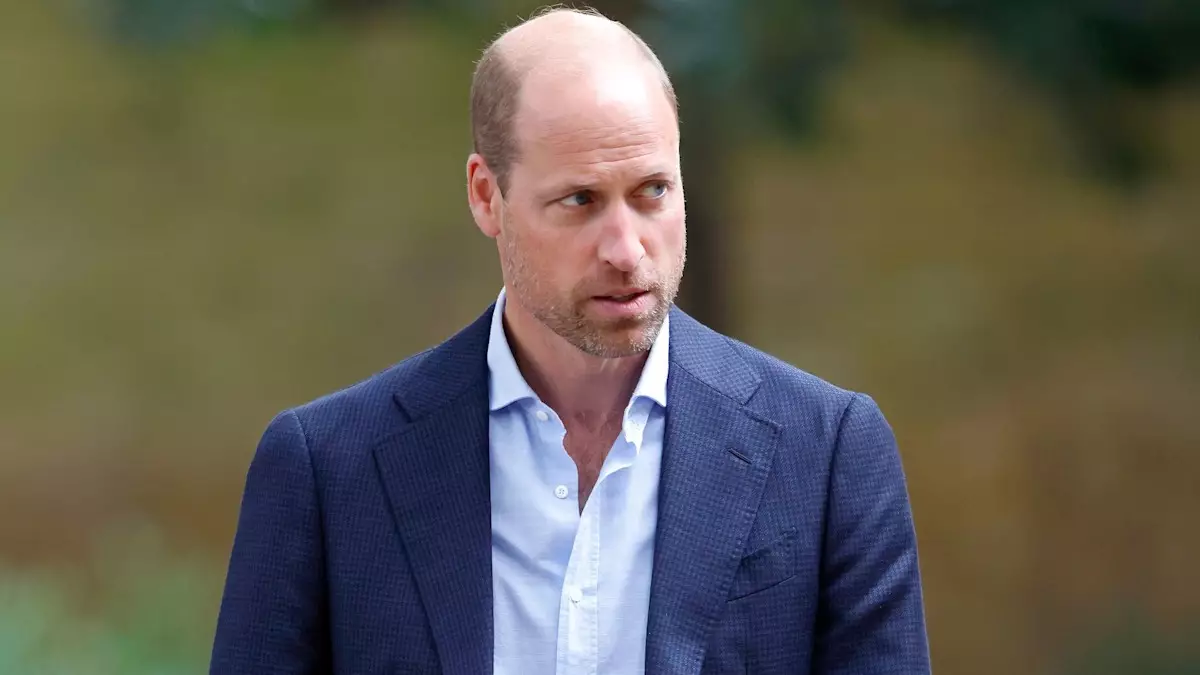As the world watches the intricate dance of diplomacy and tradition, the decision for Prince William, the Prince of Wales, to represent King Charles at Pope Francis’s funeral reflects not just royal duties, but the evolving role of the monarchy in global contexts. This ceremonial event at the Vatican on Saturday will serve not only as a tribute to the late pontiff but will also signify a significant moment for Prince William, affirming his position as a burgeoning statesman on the world stage. Each engagement of this caliber speaks volumes about the monarchy’s intentions to maintain relevance and connection with contemporary concerns, as they transition from bygone customs into a modern era of leadership.
William’s attendance is particularly poignant given the backdrop of his father, Charles, who previously represented the royal family during Pope John Paul II’s funeral in 2005. This intergenerational continuity fosters a sense of royal tradition while simultaneously introducing new dynamics. The younger prince stepping into these shoes emphasizes a model of engagement that reflects not only personal commitment but also the monarchy’s greater mission: to address world issues and exhibit solidarity among nations during times of mourning.
A Consistent Narrative of Respect and Unity
In addressing the passing of Pope Francis, who died aged 88 following a stroke, King Charles’s statement underscores the deep respect the British monarchy holds for influential figures across faiths. The king expressed profound sorrow yet highlighted the pontiff’s message of compassion, unity, and care for creation. This acknowledgment serves to bridge the often-sharpened divide that can exist between secular and religious domains, showcasing the monarchy’s commitment to universal humanitarian ideals.
The king’s eloquence resonates for various reasons. He emphasizes not only the loss felt within the Catholic community but amplifies the shared grief experienced by millions drawn to the Pope’s teachings. Charles’s use of language such as “heavy hearts” and terms of empathy creates a narrative that invites people to unite in sorrow, transcending cultural and geographical divides. This unity through grief presents an opportunity for dialogue and mutual understanding, making William’s attendance all the more meaningful.
Monarchical Representation and Historical Context
Traditionally, royal family members have assumed roles that highlight their connection to both church and state, yet this is where the essence of modern monarchy becomes increasingly critical. Unlike his grandmother, who never attended a papal funeral, William’s engagement with the Vatican serves as a marked shift, symbolizing both an acknowledgment of the significant impact of the papacy in world affairs and a commitment to fostering interfaith dialogue.
This adjustment in royal representation speaks to the changing landscapes of global governance and personal faith, urging the monarchy to step closer to the communities it serves—both secular and religious. The presence of other world leaders at the funeral, from King Felipe and Queen Letizia of Spain to President Emmanuel Macron of France, reinforces a collective mourning that invites broader discussions about legacy, faith, and leadership across various spheres.
Future of Monarchical Engagement: A New Era Begins
As Prince William prepares for this solemn occasion, it is evident that this moment transcends mere attendance. It marks a turning point in how royal duties are rendered meaningful in a contemporary setting. This funeral not only serves as a farewell to a significant religious leader but also as an emblematic occasion for a new generation of royals dedicated to addressing global issues.
By positioning himself in this way, William is not just stepping into a historical role but is navigating towards a future where engagement is defined by empathy, understanding, and actionable dialogue. Today, the boundaries set by tradition are being reshaped, as representatives of the monarchy seek to align themselves with the contemporary world’s complexities, addressing not only the duties associated with their titles but also delivering a potent message of hope and unity in a fractured world.
Thus, we witness a constructive evolution that could redefine the meaning of monarchy itself, as figures like William embrace their role as advocates for collaboration, engagement, and compassion in a rapidly evolving global landscape.

Leave a Reply